How To Protect Security Cameras From Hackers
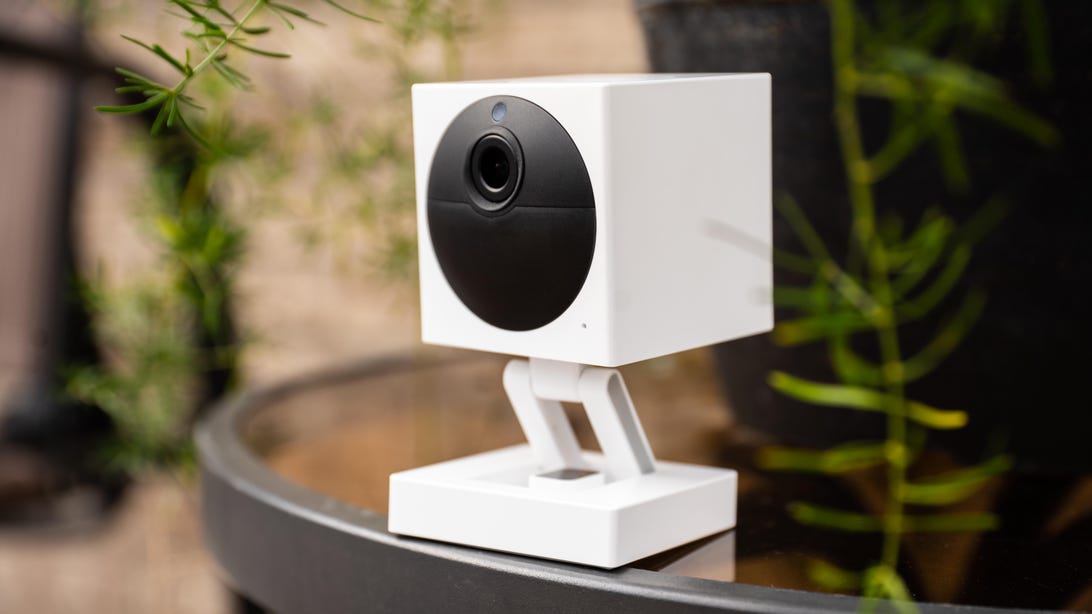
Here are a few practices that can help protect your device security and data privacy.
Chris Monroe/CNETInstalling an internet-connected security photographic camera in your firm won't necessarily bring a wave of hackers to your Wi-Fi network -- but losing privacy resulting from a device'south security shortcomings is surprisingly common. Last twelvemonth, an ADT habitation security customer noticed an unfamiliar e-mail address connected to her dwelling house security account, a professionally monitored system that included cameras and other devices within her home. That uncomplicated discovery, and her report of it to the company, began to topple a long line of dominoes leading back to a technician who had spied, over the course of iv and a half years, on hundreds of customers -- watching them live their individual lives, undress and even have sexual activity.
ADT says it has closed the loopholes that technician exploited, implementing "new safeguards, training and policies to strengthen … business relationship security and client privacy." Only invasions of privacy are not unique to ADT, and some vulnerabilities are harder to safeguard than others.
Whether you're using professionally monitored security systems such as ADT, Comcast Xfinity or Vivint, or y'all only accept a few stand-lonely cameras from off-the-shelf companies like Ring, Nest or Arlo, hither are a few practices that can assistance protect your device security and data privacy.
Read more: Amazon unwraps privacy features as it tries to roll deeper into your abode
Is my security system vulnerable?
Earlier jumping into solving the bug of device insecurity, it'southward helpful to sympathise how vulnerable your devices actually are.
Major professionally monitored security systems -- and fifty-fifty individually sold cameras from reputable developers like Google Nest and Wyze -- include high-end encryption (which scrambles messages within a arrangement and grants admission through keys) almost across the board. That means as long every bit you lot stay current with app and device updates, you should have little to fear of beingness hacked via software or firmware vulnerabilities.
Besides, many security companies that use professional installers and technicians have strict procedures in place to avert precisely what happened at ADT. The Security Industry Association -- a third-political party group of security experts -- advises manufacturers such as ADT on matters relating to privacy and security.
"The security industry has been paying attending to [the upshot of privacy in the home] since 2010," said Kathleen Carroll, chair of the SIA's Data Privacy Advisory Board, "and we continue to work to help our member companies protect their customers."
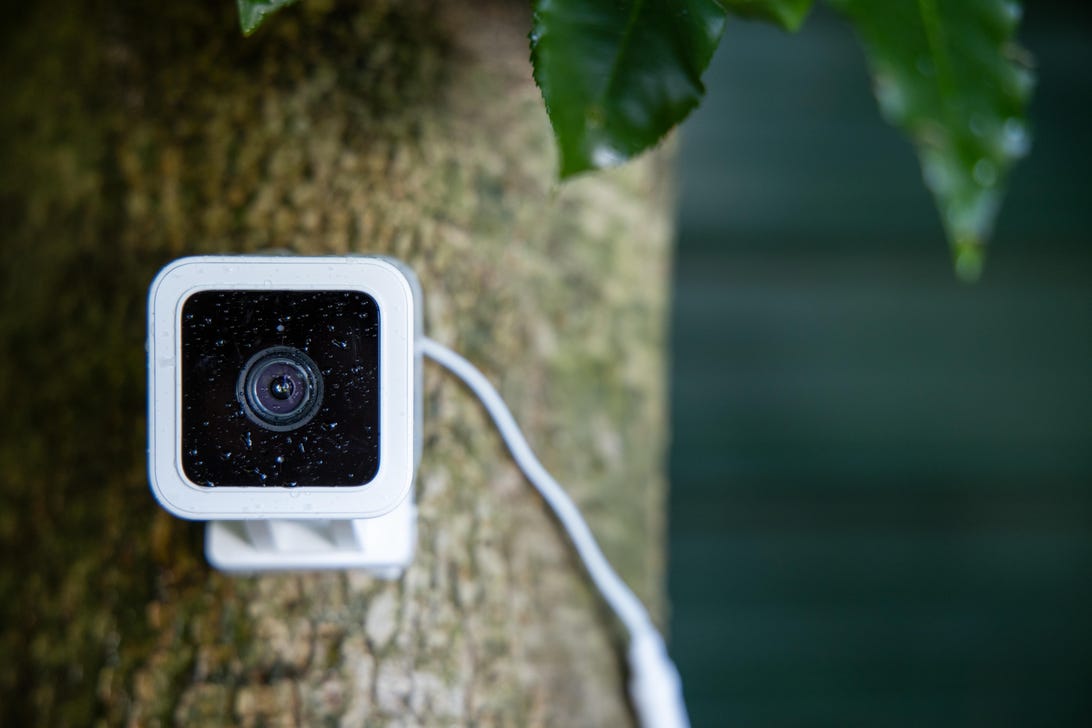
Security cameras are getting cheaper by the year, but that doesn't mean customers should be comfortable giving up their privacy.
WyzeSome professionally monitored systems, such equally Comcast and now ADT, address the problem past merely strictly limiting the actions technicians can take while assisting customers with their accounts -- for case disallowing them from adding electronic mail addresses to accounts or accessing whatsoever recorded clips.
"We have a team at Comcast dedicated specifically to camera security," a Comcast spokesperson said. "Our technicians and installers accept no access to our customers' video feeds or recorded video, which can only be accessed by a small grouping of engineers, nether monitored weather condition, for issues similar technical troubleshooting."
"Simply customers can decide who is immune to access their Vivint system, including their video feeds," a spokesperson for dwelling house security company Vivint said. "As admin users, they can add, remove or edit user settings. And ... nosotros regularly acquit a variety of automated and transmission audits of our systems."
With DIY systems, customers set upwardly their ain devices, making technician admission a moot point. But if customers opt into additional monitoring, which is ofttimes offered alongside individual products, that may complicate the result.
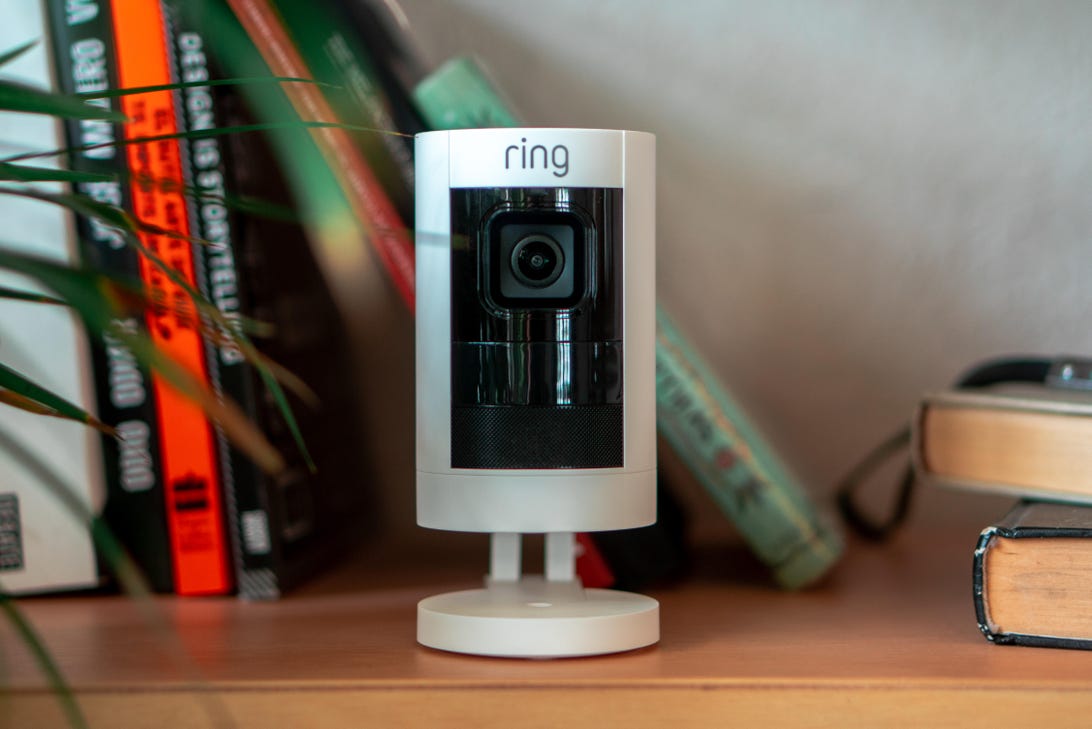
More than cameras are available to purchase than e'er before, whether you're opting into a professionally monitored security system or a DIY culling.
Óscar Gutiérrez/CNETI such company, Frontpoint, said in an electronic mail that it tightly constrains personnel access to client information, disallowing, for instance, agents from watching customer camera feeds -- except in particular, time-boxed cases where permissions are obtained from the customer, for the purpose of troubleshooting or other types of help.
A representative of SimpliSafe, another developer straddling the line between DIY and professionally installed domicile security, responded more broadly to questions nearly its procedures: "Much of our day-to-day work is focused on maintaining our systems so that vulnerabilities are immediately identified and addressed. This relentless focus includes both internal and external security protocols."
In short, security companies appear to exist consciously using multiple levels of security to protect customers from potential abuse by installers and technicians -- even if the processes by which they exercise this aren't entirely transparent. Simply even if they're effective, that doesn't mean your smart cameras are totally secure.
How could my cameras be accessed?
The ADT instance didn't technically require any hacking on the function of the technician, only what if hacking is involved? In that location are enough of cases of remote hacks, later all. And fifty-fifty quality devices with loftier levels of encryption aren't necessarily safe from hacking, given the right circumstances.
There are ii principal means a hacker tin can proceeds control of a video feed, security expert Aamir Lakhani of FortiGuard told CNET: locally and remotely.
To access a camera locally, a hacker needs to be in range of the wireless network the camera is connected to. There, they would need to obtain access to the wireless network using a number of methods, such every bit guessing the security passphrase with brute force or spoofing the wireless network and jamming the actual one.
Within a local network, some older security cameras aren't encrypted or countersign-protected, since the wireless network security itself is often considered enough of a deterrent to keep malicious attacks at bay. So once on the network, a hacker would accept to practice little else to take control of the cameras and potentially other IoT devices effectually your business firm.
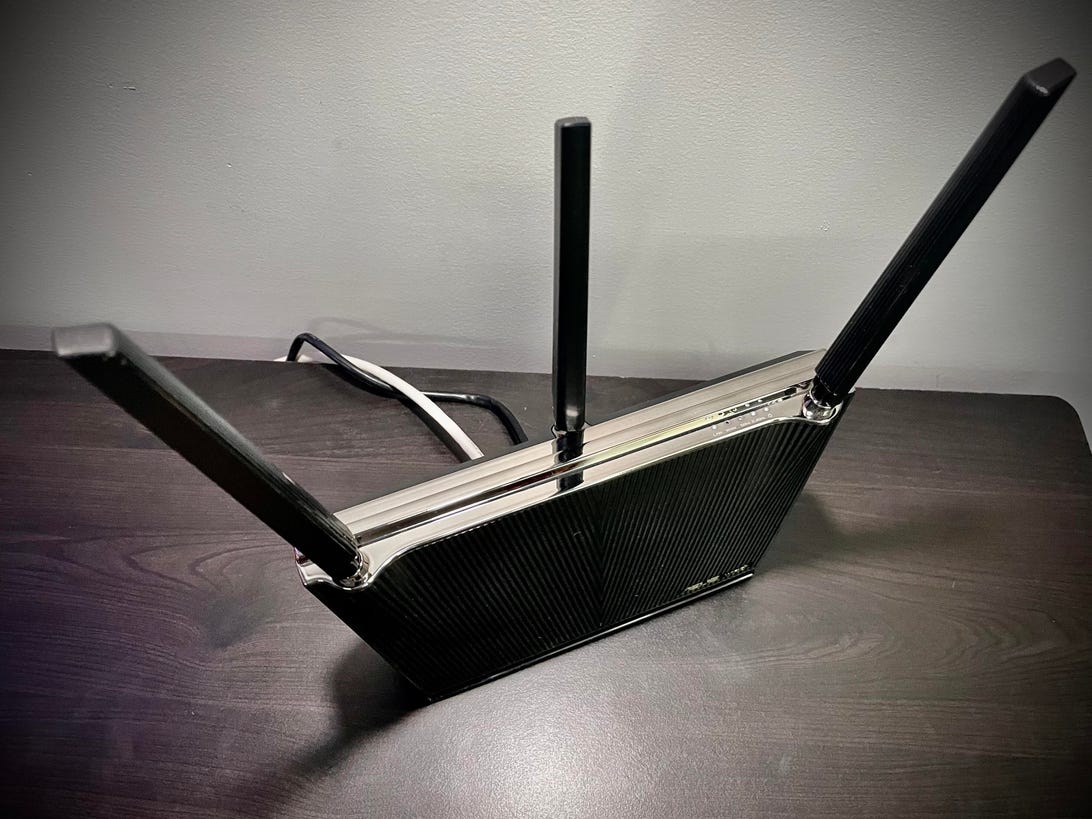
Hacking routers directly and locally is i route, albeit an uncommon one, to access a security camera feed.
Ry Crist/CNETLocal hacks are unlikely to touch you, though, as they crave focused intent on the target. Remote hacks are the far more probable scenario, and examples crop up fairly ofttimes in the news cycle. Something equally common as a data breach -- such every bit those at Equifax or Delta -- could put your login credentials in the incorrect easily, and short of irresolute your password frequently, there's non much yous could do to preclude information technology from happening.
Even if the security visitor you utilize -- professionally monitored or otherwise -- has stiff security and finish-to-finish encryption, if you lot use the same passwords for your accounts every bit you do elsewhere on the cyberspace and those credentials are compromised, your privacy is at gamble.
And if the devices you use are dated, running out-of-date software or simply products from manufacturers that don't prioritize security, the chances of your privacy being jeopardized rise significantly.
For hackers with a piddling know-how, finding the adjacent target with an unsecured video feed is only a Google search away. A surprising number of people and businesses gear up up security camera systems and never alter the default username and password. Certain websites, such every bit Shodan.io, display just how piece of cake it is to access unsecured video feeds such equally these past aggregating and displaying them for all to see.
How to know if you've been hacked
It would exist nigh impossible to know if your security camera -- or possibly more unnervingly, baby monitor -- has been hacked. Attacks could get completely unnoticed to an untrained middle and well-nigh people wouldn't know where to begin to look to check.
A cherry flag for some malicious activity on a security camera is irksome or worse than normal performance. "Many cameras have limited retentiveness, and when attackers leverage the cameras, CPU cycles have to work extra hard, making regular camera operations nearly or entirely unusable at times," said Lakhani.
And so once again, poor performance isn't solely indicative of a malicious attack -- it could have a perfectly normal explanation, such equally a poor internet connection or wireless signal.
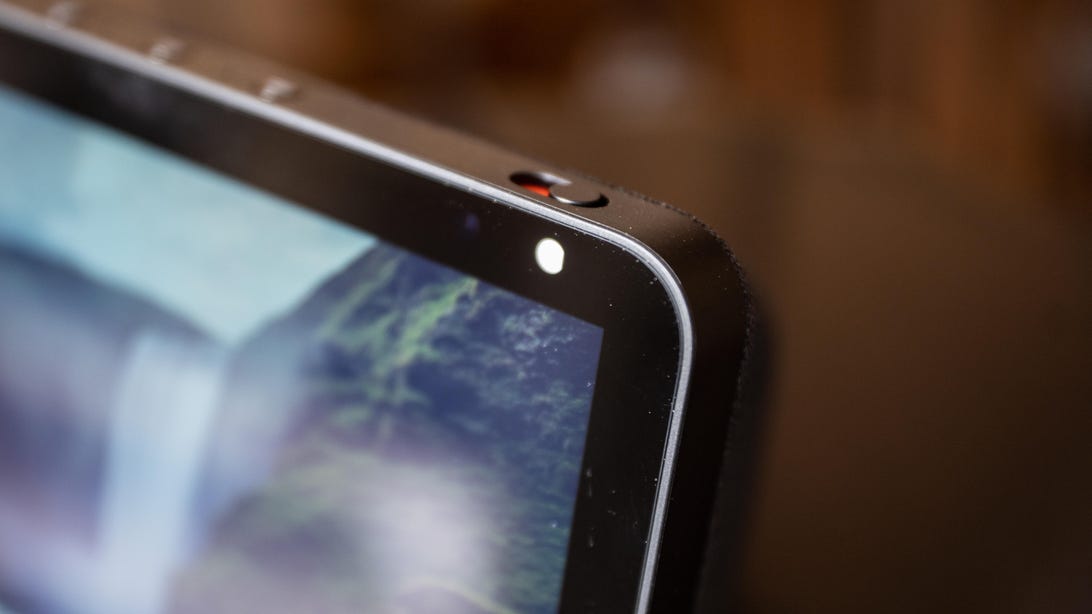
Some devices, such as Amazon's newer Repeat Evidence displays, feature physical shutters to cover cameras when they are not in utilise.
Chris Monroe/CNETHow to protect your privacy
While no ane organization is impervious to an attack, some precautions tin can further subtract your odds of being hacked and protect your privacy in the case of a hack.
- Utilise cameras from reputable manufacturers, whether they are function of a professionally monitored security system or a DIY device.
- Use cameras with loftier-level, end-to-end encryption.
- Change your credentials to something that cannot easily be guessed (in particular, avert using passwords you already use for other online accounts).
- Update the camera firmware frequently or whenever possible.
- Use 2-factor authentication if possible.
Some other important step is simply avoiding the conditions for an invasion of privacy. Hacks are unlikely and can be largely avoided, only keeping cameras out of private rooms and pointed instead toward entryways into the house is a good manner to avoid the worst potential outcomes of a hack.
Lakhani also suggested putting stand-lone security cameras on a network of their own. While this would doubtless foil your plans for the perfect smart abode, it would assist forestall "state and expand," a process past which an attacker gains access to one device and uses information technology to take command of other connected devices on the aforementioned network.
Taking that one footstep further, y'all can use a virtual private network, or VPN, to further restrict which devices tin admission the network the security cameras are on. You tin can likewise log all activity on the network and be sure there'southward cypher unusual happening there.
Again, the chances of being the victim of an attack like this are quite modest, especially if you follow the most basic safe precautions. Using the above steps will provide multiple layers of security, making it increasingly hard for an attacker to have over.
Correction, Feb. eleven: An earlier version of this article misstated when ADT sought advice from the SIA. ADT's piece of work with the SIA predates the discovery of the technician's abuse terminal year.
More habitation security recommendations:
- All-time video doorbell cameras
- Best home security systems
- All-time wireless dwelling house security cameras
- Best facial recognition cameras
- All-time smart locks
- Best outdoor home security cameras
- Best cheap habitation security cameras
- Best indoor home security cameras
Source: https://www.cnet.com/home/security/stop-home-security-camera-hacking/
Posted by: cabralbarbence.blogspot.com


0 Response to "How To Protect Security Cameras From Hackers"
Post a Comment